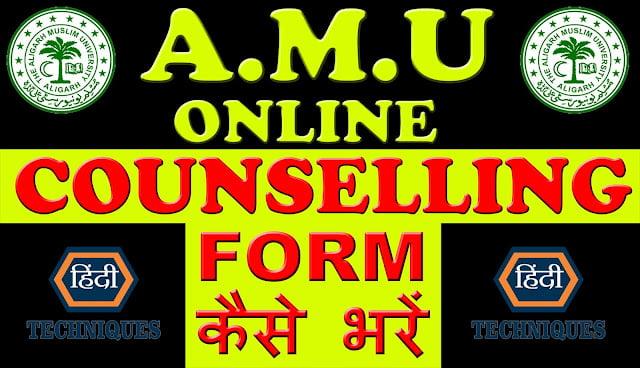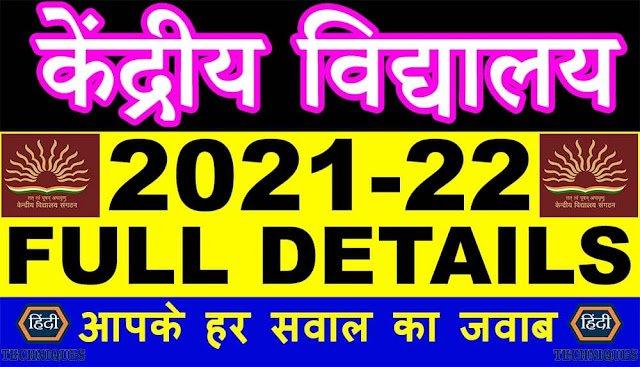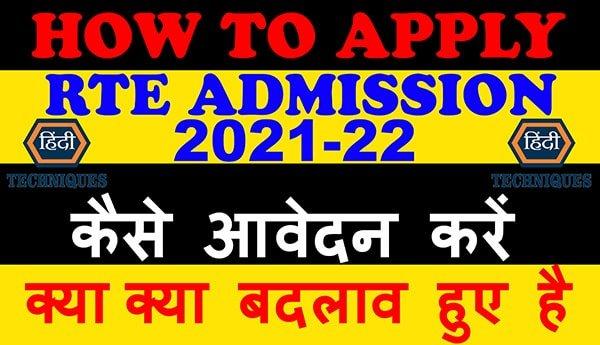Last updated on November 4th, 2023 at 11:52 pm
Education is a fundamental right, and pursuing higher studies is a dream cherished by many young Indians. However, the rising cost of education, both in India and abroad, often poses a significant financial challenge for students and their families. This is where education loans come into play, providing a lifeline for those aspiring to attain higher education. In this comprehensive guide, we will explore How to get education loan after 12th in India, addressing key questions and concerns along the way.
How to Get an Education Loan After 12th in India?
We have already talked about education loans on our blog Hindi Techniques. But after passing class 12th, the number of people taking loans is more and after passing 12th, when people take admission in graduation, then the need of money is more. In our previous article, we told you when is the last date of PM Vishwakarma Yojana. Because even in PM Vishwakarma Yojana, there is a scheme to get a loan of ₹ 100000. Today in this article we will talk about how to get education loan after 12th in India. So let’s start the article.
Before starting the article, let us tell you that taking an education loan after passing 12th class is quite easy but it also has some conditions. Like minimum percentage, document requirement, and eligibility criteria, today in this article we will discuss all these topics in detail and all the questions related to taking education loans after 12th class will be discussed in detail one by one. Will discuss. We have given below some important questions among those questions.
Related Queries.
- What is an education loan in India?
- Is it possible to get education loan after 12th?
- Is 12th marks important for education loan?
- How much education loan can I get after 12th?
- How to get education loan after 12th in India?
- How to apply for education loan after 12th?
- How to get education loan after 12th in sbi?
- How much percentage is required for education loans in SBI?
- What are the requirements for an education loan after 12th?
- How to get loan on 12th marksheet in India?
- 5 best education loans after 12th in india.
What is an Education Loan in India?
An education loan in India, commonly known as “एजुकेशन लोन” in Hindi, is a financial assistance program provided to students to support their higher education endeavors. In contemporary times, education plays a pivotal role in an individual’s life. However, the cost of pursuing higher education, especially after completing the twelfth grade, can become prohibitively expensive for many individuals and their families. This is where education loans come into play.
Education loans serve as a lifeline for students who aspire to pursue graduation or post-graduation but face financial constraints. These loans are typically offered by both government and private banks and financial institutions. They enable students to access the necessary funds required for tuition fees, living expenses, books, travel, and other education-related costs.
One of the most significant advantages of education loans is that they eliminate the financial barrier that often hinders students from pursuing their desired courses. Whether it’s a bachelor’s degree or a postgraduate program, education loans make quality education accessible to all, regardless of their financial background.
Education loans come with several key features and benefits:
- Flexible Repayment: Education loans offer flexible repayment options. Students usually begin repaying the loan after they secure employment, ensuring that the burden of repayment doesn’t interfere with their studies.
- Competitive Interest Rates: Education loans typically have lower interest rates compared to other types of loans, making them an affordable option for students.
- Builds Credit Score: Timely repayment of an education loan can help students establish a positive credit history, which can be beneficial for future financial endeavors.
- Focus on Education: By providing financial support, education loans allow students to concentrate on their studies without the constant worry of financial constraints.
Is It Possible to Get Education Loan After 12th?
Yes, it is indeed possible to get education loan after 12th standard in India. In fact, education loans are tailored to support students in pursuing professional or technical courses at various levels, including undergraduate, postgraduate, and diploma programs. These loans are a beacon of hope for those who wish to continue their studies but face financial constraints.
Below we have mentioned 5 such education loans that you can easily get after 12th class. We have explained all its processes below.

Is 12th Marks Important for Education Loan?
Yes, absolutely 12th class marks are important for education loans. If any government bank or private bank or any other private institution gives you an education loan after 12th class, then it will definitely see how you have performed in the 12th. Will you be able to do further studies well or not? Is it possible that the loan we are providing to this student may go to waste and this child may not be able to succeed further?
After checking all these things, your education loan gets approved easily and this is why 12th class marks are very important for an education loan.
How Much Education Loan Can I Get After 12th?
The amount of education loan you can get after completing the 12th standard can vary significantly and depends on several factors. As of September 21, 2023, in India, you can generally secure an education loan of up to approximately 10 lakhs with relative ease for pursuing graduation or other professional courses. However, the exact loan amount you receive is subject to certain conditions and factors.
Factors Influencing Education Loan Amount |
|---|
| 1. Choice of Course |
| Different courses have varying fee structures, and the loan amount typically covers these expenses. More expensive courses may result in a higher loan amount. |
| 2. Type of Institution |
| Government-recognized institutions often have lower fees, making it easier to secure loans for them. Private institutions may require a higher loan amount due to higher fees. |
| 3. Choice of Lender |
| Government banks and private banks may have different lending policies. Government banks might offer more competitive interest rates and favorable terms. |
| 4. Course Location |
| If you plan to study abroad, you can potentially access a higher loan amount due to increased expenses for tuition, living, and travel. |
| 5. Collateral and Guarantor |
| Some lenders may require collateral or a guarantor to secure the loan. If you can provide collateral or have a suitable guarantor, you may be eligible for a higher loan amount. |
| 6. Repayment Capacity |
| Your ability to repay the loan influences the loan amount. Lenders may consider your future earning potential and financial stability. |
How to Get Education Loan After 12th in India?
Getting an education loan after the 12th standard involves a series of steps to ensure a smooth and successful application process. Here’s a step-by-step guide to help you navigate this journey:
Step 1: Select a Suitable Lender
- The first step is to choose the best lender or financial institution that offers education loans in India.
Step 2: Check Eligibility Criteria
- Once you’ve selected a bank or financial institution, carefully review their terms and conditions and eligibility criteria to ensure you meet the requirements.
Step 3: Gather Required Documents
- Collect all the necessary documents required for the loan application. These typically include your mark sheets, identification documents, admission letter, the fee structure of the educational institution, income proof, and co-applicants’ KYC documents.
Step 4: Choose the Relevant Loan Scheme
- When applying for the loan, ensure that you select the loan scheme that aligns with your eligibility and the course you intend to pursue after the 12th standard. Specify all the details related to your chosen course.
Step 5: Submit the Loan Application
- You can apply for the loan through either an offline or online process, depending on whether you’re applying with a bank or a private financial institution. Follow the respective application process and submit all required documents.
Step 6: Await Approval and Disbursement
- After completing the application process, the lender will review your application. If approved, the loan amount will be disbursed to your account.
These are the six steps you should follow to easily obtain an education loan in India after completing your 12th standard. Additionally, in our article, we have listed five education loan lenders in India who provide loans to students after the 12th class.
How to Get an Education Loan After 12th in SBI?
The State Bank of India (SBI) is one of the prominent lenders offering education loans to aspiring students. To obtain an education loan from SBI after the 12th standard, you can follow these steps:
1. Research SBI Education Loan Products:
- Visit the official SBI website to explore the various education loan products they offer.
- Familiarize yourself with the specific features and requirements of each loan scheme.
2. Check Eligibility:
- Ensure that you meet SBI’s eligibility criteria, which typically include Indian nationality, admission to a recognized institution, and specific academic qualifications.
3. Gather Required Documents:
- Collect all the necessary documents, including marksheets, KYC documents, admission letter, fee structure, and co-applicant’s income proof.
4. Choose the Appropriate Loan Scheme:
- Select the SBI education loan scheme that aligns with your educational pursuits and financial needs.
- Pay attention to interest rates, loan limits, and repayment terms.
5. Submit Your Application:
- Apply for the SBI education loan online through their official portal or visit a nearby SBI branch to complete the application process.
- Provide accurate details and upload the required documents as per SBI’s guidelines.
6. Loan Processing and Disbursement:
- SBI will review your application, verify your documents, and assess your eligibility.
- Upon approval, the loan amount will be disbursed directly to your chosen educational institution to cover your expenses.
7. Loan Repayment:
- Familiarize yourself with SBI’s loan repayment terms and options, which typically commence after the moratorium period.
- Choose a suitable repayment plan and ensure timely repayments to avoid penalties.
How Much Percentage is Required for Education Loans in SBI?
SBI and other lenders usually do not specify a minimum percentage requirement for education loans based on academic performance in the 12th standard. However, it’s important to emphasize that admission to a recognized educational institution and meeting the lender’s other eligibility criteria are typically the primary factors considered for loan approval. While a strong academic record can bolster your application, SBI places more weight on other aspects such as course selection and institution recognition.
What Are the Requirements for an Education Loan After 12th?
To qualify for an education loan after completing the 12th standard, you generally need to meet the following requirements:
- You must be an Indian national.
- Required specific percentage.
- Family income proof.
- You should have secured admission to a recognized university or college for a degree, diploma, or professional course.
- Co-applicant: Some lenders may require a co-applicant, usually a parent or guardian, to provide income proof and act as a joint borrower.
How to Get a Loan on 12th Marksheet in India?
While it is possible to obtain an education loan based on your 12th standard marksheets, most lenders in India prioritize factors like admission to a recognized institution and course selection over academic performance. Therefore, securing admission to your desired educational program is typically the primary criterion for loan approval. However, having a strong academic record can positively influence your application and potentially lead to more favorable loan terms.

5 Best Education Loans After 12th in India
Choosing the right education loan is crucial, as it can significantly impact your financial future. Here are five of the best education loan options available to students after completing the 12th standard in India:
1. State Bank of India (SBI):
- SBI offers a range of education loan products with competitive interest rates.
- It provides loans for various courses, both in India and abroad, and offers flexible repayment options.
- SBI’s education loans are known for their accessibility and favorable terms, making them a top choice for many students.
Click for Apply for SBI education loan.
2. Punjab National Bank (PNB):
- PNB offers education loans with attractive interest rates and easy application processes.
- They have specific loan schemes designed for students in the Overseas Citizen of India (OCI) category.
- PNB’s education loans are suitable for those studying abroad but born in India.
Click for PNB education loan.
3. Vidya Lakshmi Education Loans:
Vidya Lakshmi is a portal that facilitates the application process for educational loans provided by various banks in India. It offers a single window for students to access information about different loan schemes and make applications for educational loans with Indian Government subsidies. Here’s a breakdown of the requirements and application process for Vidya Lakshmi education loans after the 12th standard:

Requirements for Registering on Vidya Lakshmi Portal:
- Name: Enter your name exactly as it appears on your 10th-grade mark sheet or as per the mark sheet attached to your loan application. Make sure there are no discrepancies.
- Mobile Number: Provide a valid mobile number. In some cases, students can provide the mobile number of their parent or guardian if it’s used for communication purposes.
- Email ID: Enter a valid email ID. It’s crucial to note that once you enter your email ID during registration, it cannot be changed. All necessary communications regarding your loan application will be sent to this email ID.
Application Process on Vidya Lakshmi Portal:
- Registration: To get started, visit the Vidya Lakshmi portal and click on the registration link. Fill in the required details, including your name, mobile number, and email ID, as per the guidelines mentioned above.
- Verify Your Email: After completing the registration, you’ll receive an email from Vidya Lakshmi at the provided email address. Open the email and click on the verification link to confirm your email.
- Complete Your Profile: Once your email is verified, log in to your Vidya Lakshmi account and complete your profile. You may need to provide additional personal information and academic details.
- Loan Search and Application: After completing your profile, you can search for various educational loan schemes offered by banks. Explore the available options and select the one that suits your requirements.
- Loan Application: Click on the chosen loan scheme and initiate the application process. Fill in the necessary details, such as the course details, institution information, loan amount required, and any other requested information.
- Upload Documents: Attach the required documents, such as your mark sheets, admission letter, fee structure, and any other documents requested by the bank.
- Submit Application: Review all the provided information and documents carefully. Once you are satisfied that everything is accurate, submit your loan application.
As of September 2023, the latest research has shown that loans applied from Vidyalakshmi website mostly get approved easily. If you have just completed 12th and want to take an education loan, then Vidya Lakshmi Education Loan can prove to be a very good option for you. Click above to apply for it.
4. Baroda Gyan Education Loan after 12th
The “Baroda Gyan” education loan is a financial product offered by Bank of Baroda, one of India’s prominent public sector banks. It is designed to provide financial assistance to Indian students pursuing various educational programs, including graduation, post-graduation, or professional courses within India. Here are some key features of the Baroda Gyan education loan:

- Eligibility: To be eligible for the Baroda Gyan education loan, a student must have secured admission to a recognized educational institution and be pursuing a course in India.
- Loan Amount: The loan amount can go up to a maximum of Rs. 125 lakhs. This substantial loan amount helps cover tuition fees, living expenses, books, equipment, and other related educational costs.
- Loan Tenure: Borrowers have the flexibility to choose a loan repayment tenure ranging from 10 to 15 years. This extended repayment period allows students and their families to manage the loan repayment comfortably.
- Expenses Covered: The loan can be used to cover various educational expenses, including tuition fees, examination fees, hostel fees, laboratory fees, travel expenses, and other study-related costs.
- Interest Rates: The interest rates for education loans like Baroda Gyan may vary based on market conditions and other factors. Banks typically offer competitive interest rates on education loans to make them affordable for students and their families.
- Collateral: Depending on the loan amount, banks may require collateral or a co-signer as security for the loan. The specific collateral requirements may vary from one case to another.
- Repayment: Repayment of the loan usually begins after the completion of the course, and there is often a moratorium period provided for job search or further studies. The borrower is required to start repaying the loan in Equated Monthly Installments (EMIs) once this grace period ends.
Click for apply Baroda Gyan Education Loan
5. Spoctree Course Bifurcation education loans after 12th.
The Spoctree course bifurcation education loans after 12th categorizes the loans into different types based on the nature of the courses pursued by students:

Types of Spoctree Education Loan.
- Undergraduate Courses Loan: This category of education loan is designed for students pursuing degree courses that typically last for 3 to 4 years. These courses often lead to a bachelor’s degree.
- Graduate Loans: Similar to undergraduate courses, this loan category is also meant for degree courses that span 3 to 4 years and result in the attainment of a bachelor’s degree.
- Career Courses Loans: These loans are specifically tailored for students who are looking to undergo career development, training, or diploma courses. Unlike traditional degree programs, these courses are often shorter in duration and focus on skill development or specialized training.
Education loans play a crucial role in financing higher education for students who may not have the means to cover the costs themselves. These loans typically offer lower interest rates compared to other types of loans and come with extended repayment tenures. Repayment usually begins after a grace period, which can range from 6 to 12 months, following the completion of the course.
Click for Apply Spoctree bifurcation education loans
Conclusion
Securing an education loan after the 12th standard in India is a viable option for those who aspire to pursue higher studies but face financial constraints. These loans open doors to educational opportunities and help individuals realize their dreams. To make the most of this financial aid, it’s essential to research various lenders, understand their terms, and choose the one that best suits your educational goals and financial situation.
Remember that while academic performance is valuable, admission to a recognized institution and meeting the lender’s eligibility criteria are the key factors for loan approval. By following the steps outlined in this guide and selecting the right education loan, you can embark on your educational journey with confidence and financial support.
FAQs
Are 12th-grade marks important for securing an education loan?
While having good academic records can be advantageous, education loan approval primarily depends on factors such as securing admission to a recognized institution and meeting the lender's eligibility criteria. Marks from the 12th standard are not the sole determinant.
What are the requirements for an education loan after the 12th standard?
To qualify for an education loan after the 12th, you should generally be an Indian national who has secured admission to a recognized university or college. You may also need a co-applicant, and the co-applicant's income and collateral may be required, depending on the lender.
What percentage is required for education loans in SBI?
The required percentage for education loans in SBI may vary depending on the course and institution. Generally, SBI focuses on the applicant's admission to a recognized institution rather than specific percentage requirements.




